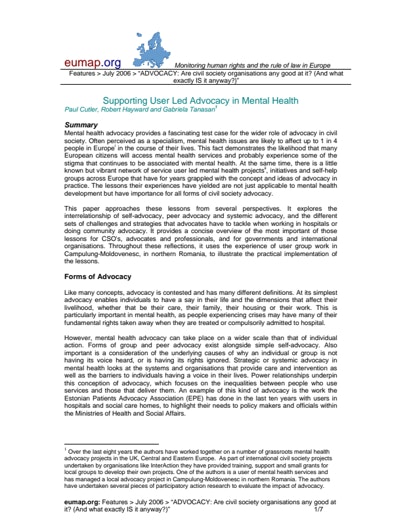Mental health advocacy provides a fascinating test case for the wider role of advocacy in civil society. Often perceived as a specialism, mental health issues are likely to affect up to 1 in 4 people in Europe in the course of their lives. This fact demonstrates the likelihood that many European citizens will access mental health services and probably experience some of the stigma that continues to be associated with mental health.
At the same time, there is a little known but vibrant network of service-user-led mental health projects, initiatives, and self-help groups across Europe that have for years grappled with the concept and ideas of advocacy in practice. The lessons their experiences have yielded are not just applicable to mental health development but have importance for all forms of civil society advocacy.
This paper approaches these lessons from several perspectives. It explores the interrelationship of self-advocacy, peer advocacy, and systemic advocacy, and the different sets of challenges and strategies that advocates have to tackle when working in hospitals or doing community advocacy. It provides a concise overview of the most important of those lessons for CSOs, advocates and professionals, and for governments and international organizations. Throughout these reflections, it uses the experience of user group work in Campulung-Moldovenesc, in northern Romania, to illustrate the practical implementation of the lessons.
Download
-
Supporting User Led Advocacy in Mental Health (57.35 Kb pdf file)
Download the complete article.
